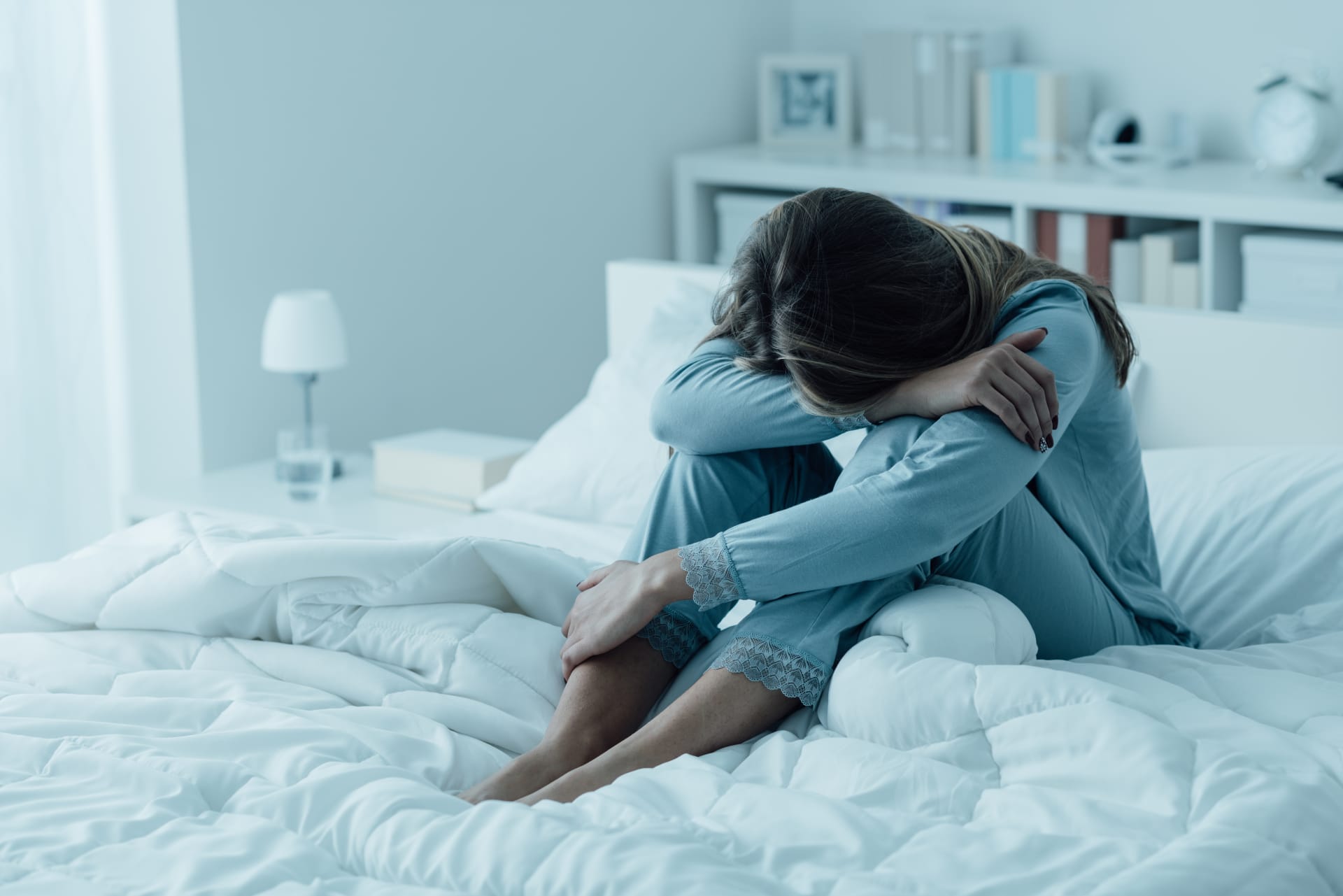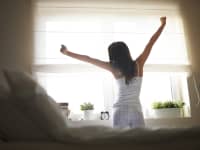Experts at sleep tech firm Simba surveyed Britons on their sleep patterns. Women and men across the UK were asked whether they slept less or more than 7 hours per night on average - the minimum the NHS recommends for adults.
They were then asked questions about the aesthetic condition of their face. The sleep technology company then utilised artificial intelligence to generate avatars based on the average national data.
The poll of 2000 adults reveals over half (53.6%) of Brits get LESS than 7 hours - with women (57% F v 50% M) and over 55s suffering most (58%).
By routinely sleeping more than the NHS recommended guidelines, females surveyed experienced significant improvements in the way they looked, including a reduction of light wrinkles, fine lines, and sagging skin, as well as being much less likely to look stressed and weary.
Findings reveal complexion improved across sixteen different variants from reduction in under eye bags, dehydrated skin, crows feet and drooping corners of the mouth.
Simba’s researchers found there was an improvement across 12 facial markers in male respondents who averaged more than seven hours of slumber each night, with the most notable benefits revealing themselves to be a reduction in eye bags and dry flaky skin. In addition to a lower likelihood of appearing weary.
“Not getting enough sleep, especially over a long stretch of time, can harm both your mind and body, and even affect your skin, whatever your age”, says Lisa Artis, Deputy CEO of Simba’s charity partner, The Sleep Charity “while genetics play a role in affecting our appearance as we get older, skimping regularly on sleep can make the situation even worse."
The research from Simba shows just how much not getting enough sleep can interfere with how you look, especially when comparing different age groups. It turns out, younger adults feel the effects of sleep deprivation on their skin more than others.
In respondents regularly clocking up less than 7 hours sleep per night, 12 per cent on average report dry flaky skin. This leaps significantly to 20 percent in 18-24 year olds and 17 percent in 25-34 year olds.
In contrast, younger adults logging more than 7 hours see levels of dry skin drop to 13 percent respectively in 18-24 year olds and 25-34 year olds.
Similarly, eye bags could be one of the key things you'll notice in your skin after a bad night's sleep if you’re 18-24. Almost a third (29%) of Gen Z respondents who routinely skimp on shut-eye suffer with this, in contrast to the 20% average figure.
Dark circles were much higher than average in 35-44 year olds as a result of sacrificing regular rest. Eye-bags also became one of the highest above-average issues in 45-54 year olds.
“At night, your skin does important work like renewing and repairing itself, and making new cells.” says Lisa Artis, Deputy CEO of Simba’s charity partner, The Sleep Charity
“Sleep is like a recharge for your body—it helps with regeneration, repairs, and keeping your hormones in balance. So, a good night's sleep is not just for feeling refreshed; it's also crucial for your overall health and skin well-being.
What can a lack of sleep do to your skin?
“When it comes to your complexion, messing with this natural regenerative cycle means your body doesn't get sufficient time to repair your skin nightly. If you keep skipping sleep, it can speed up the appearance of premature signs of ageing”, says Lisa Artis.
Fine lines and wrinkles: “Collagen, a protein crucial for maintaining soft and smooth skin, gets produced when the body is in a relaxed state during the REM stage of sleep. Failing to reach this stage increases cortisol levels in the blood, causing harm to collagen and putting a stop to its production.” Explains Artis.
Skin elasticity: “Not getting enough sleep can lead to a decline in the release of the growth hormone somatotropin. This hormone is essential for repairing damaged cells and keeping the skin elastic.”
Dark circles: “In response to stress, the body directs blood flow to vital organs, notably the brain. Sleep deprivation increases blood flow to the brain, causing the veins under the skin around the eyes to swell, leading to a darkened appearance.”
Breakouts: “The body interprets extreme fatigue as a low-level emergency. Stress hormones like cortisol and adrenaline, typically released during emergencies, cause an excessive redirection of blood, oxygen, and nutrients away from your skin to prioritise major organs like the heart, brain, and kidneys. This elevation triggers changes in the oil glands, thickening the chemical composition of the oil and leading to pore blockage, which can result in unwanted pimples.”
Dullness of skin tone: “The reduction in blood flow due to insufficient sleep hampers cell turnover. The delay in delivering fresh cells to the epidermis means that old and damaged cells linger on the surface of your skin for a more extended period."
Eye puffiness: “Tired skin retains water around the eyes, a clear indicator of insufficient sleep. Sleep deprivation disrupts blood flow, leading to fluid buildup around the eyelids and orbits. The thin skin beneath the eyes, combined with inadequate collagen formation, results in darker discolouration and accentuates underlying blood vessels.”
Aggravated skin: A 2020 study in which 40-year-old women slept four hours a night for six nights, which is the amount of sleep many people actually get. “The study demonstrated that there was an increased skin aggravation with each additional night of inadequate sleep,”
“The stress of sleeplessness often triggers an increase in cortisol, the fight-or-flight hormone. Elevated cortisol levels are linked to heightened sebaceous oil production, leading to issues like acne, oily or greasy hair, and increased skin fragility.”
“If you are experiencing insufficient sleep, it is crucial to evaluate your sleep patterns and identify areas for improvement in order to enhance your sleep quality,” explains Lisa Artis, Deputy CEO of Simba’s charity partner, The Sleep Charity.
“Additionally, seeking medical advice from a healthcare professional such as your GP, particularly if you are experiencing sleep deprivation persistently for a duration exceeding 12 weeks, is advisable.”
Due to the way the research was conducted, it could only be applied for those identifying as male or female. The results involve answers from 2,000 adults from across the UK.
For more information go to www.simbasleep.co.uk








